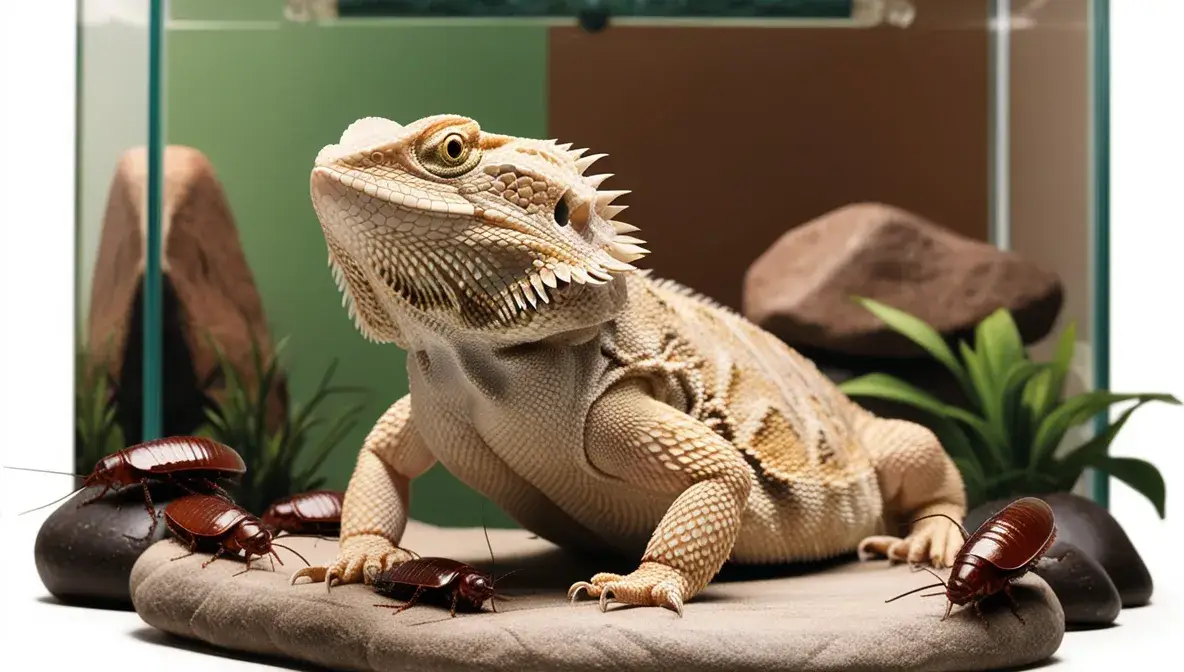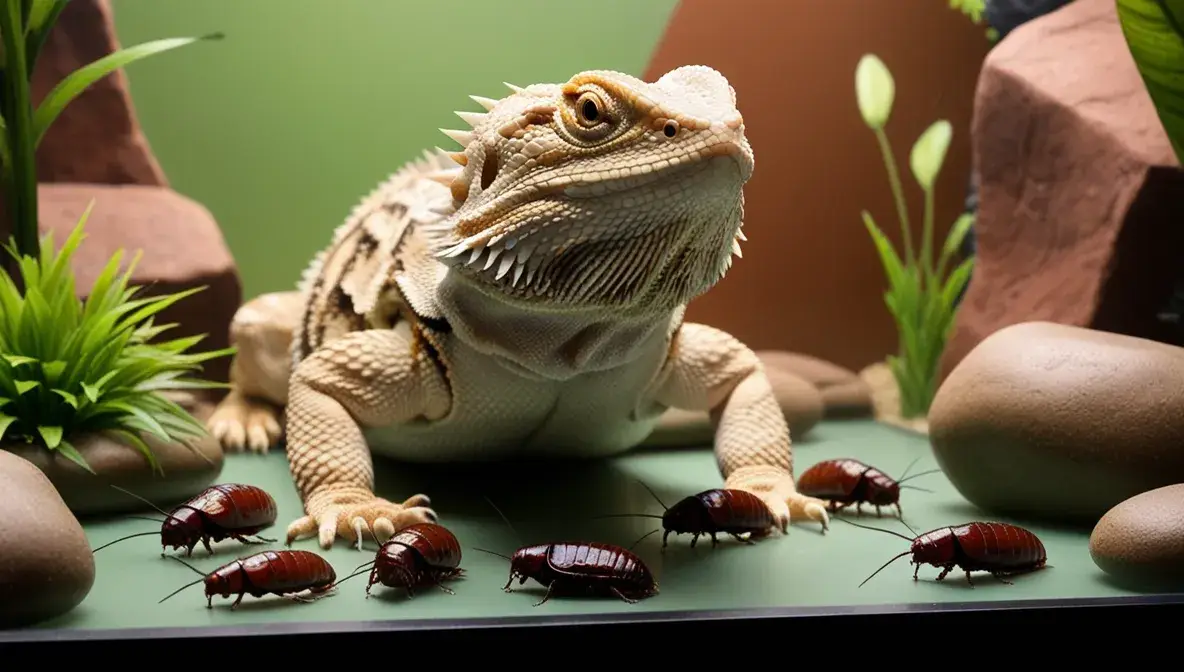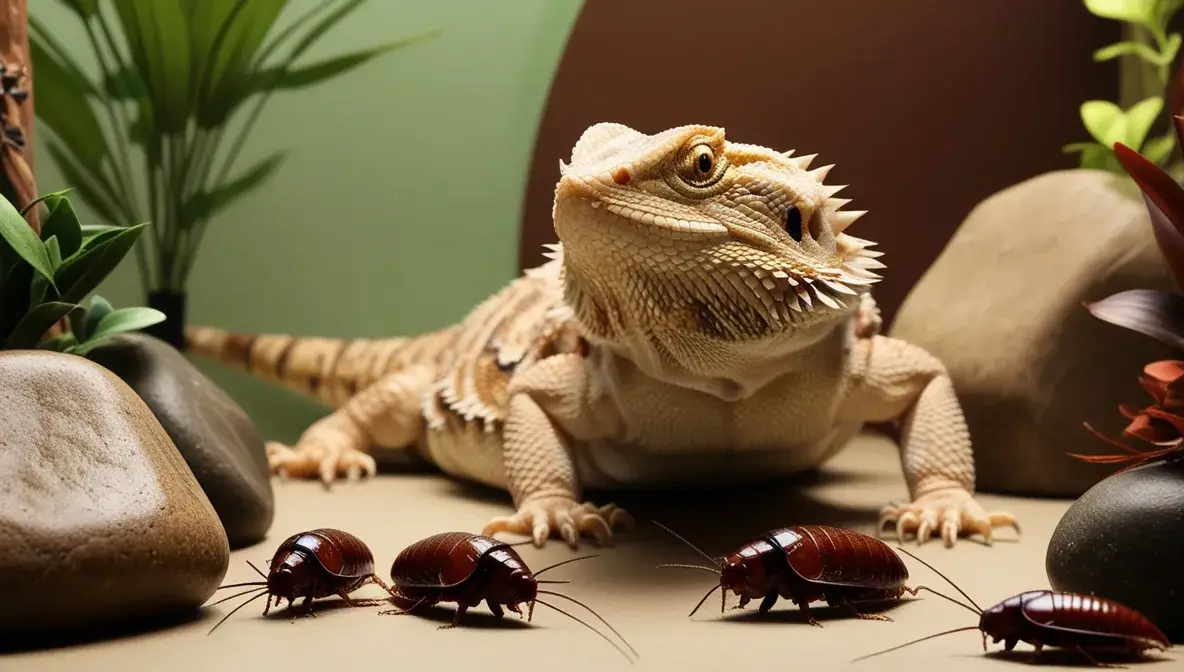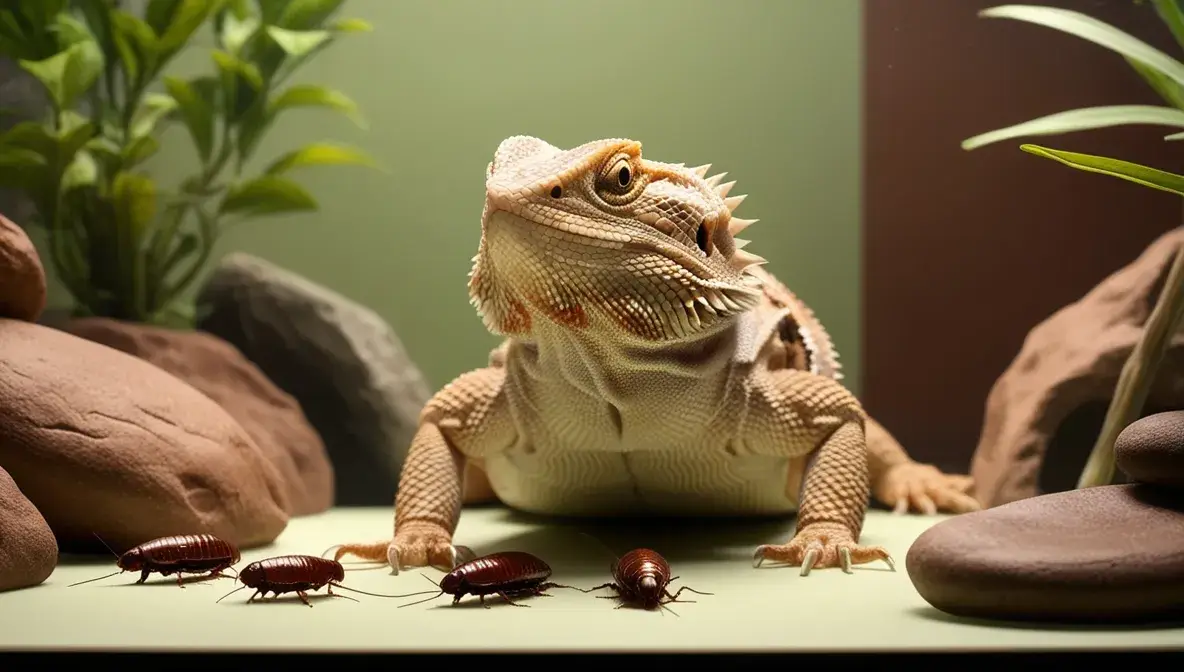When it comes to feeding bearded dragons, many reptile owners turn to Dubia roaches as a staple in their pet’s diet. These nutrient-packed insects are highly recommended for their excellent nutritional profile and ease of care. However, a common question that arises is: do Dubia roaches bite bearded dragons? Understanding this concern is crucial for ensuring the health and safety of your beloved reptile.
Dubia roaches are widely regarded as one of the best feeder insects for reptiles, but concerns about potential bites or harm can make new owners hesitant. Let’s dive deeper into the behavior of Dubia roaches, how they interact with bearded dragons, and best practices to ensure safe feeding.
What Are Dubia Roaches?

Dubia roaches (Blaptica dubia) are tropical cockroaches native to Central and South America. They have become popular feeder insects for reptiles due to their high protein content, low fat levels, and minimal maintenance requirements. Unlike crickets, which can be noisy and smelly, Dubia roaches are quiet, odorless, and easy to manage.
Key Characteristics of Dubia Roaches:
- Size: They range from small nymphs to adult roaches, making them suitable for reptiles of all sizes.
- Behavior: Dubia roaches are non-aggressive and do not have defensive mechanisms like biting or stinging.
- Diet: They are easy to gut-load, which means you can feed them nutritious food to enhance their value for your pet.
Do Dubia Roaches Bite Bearded Dragons?
The short answer is no, Dubia roaches do not bite bearded dragons. These insects lack the behavior or physical capability to harm reptiles. Let’s explore this in more detail:
Why Dubia Roaches Won’t Bite:
- Mouth Structure: Dubia roaches have small, weak mandibles designed for chewing plant material and soft foods. Their bite force is not strong enough to harm a bearded dragon.
- Behavioral Tendencies: These roaches are naturally docile and tend to avoid confrontation. They are not predators and have no reason to attack a larger animal.
- Feeding Dynamics: When placed in a bearded dragon’s enclosure, Dubia roaches focus on escaping or hiding rather than defending themselves.
While Dubia roaches are safe, it’s worth noting that improper feeding practices can lead to issues. Let’s explore some potential risks and how to mitigate them.
How to Safely Feed Dubia Roaches to Bearded Dragons

Feeding Dubia roaches is straightforward, but following best practices ensures your bearded dragon’s safety and optimal nutrition.
Step-by-Step Feeding Guide:
- Choose the Right Size Roaches: Select roaches that are no larger than the space between your bearded dragon’s eyes to prevent choking or impaction.
- Gut-Load the Roaches: Feed your Dubia roaches a nutritious diet 24–48 hours before offering them to your dragon. Popular options include fresh vegetables and high-quality insect gut-load formulas.
- Dust with Supplements: Coat the roaches with calcium and vitamin powder to support your bearded dragon’s bone health and overall nutrition.
- Offer Roaches in a Controlled Environment: Use a feeding dish or separate feeding enclosure to prevent roaches from hiding in the tank. This ensures your bearded dragon consumes all the roaches without leaving uneaten insects behind.
- Monitor the Feeding Process: Observe your dragon as they eat to ensure they successfully capture and consume the roaches.
Why It’s Important to Remove Uneaten Roaches:
Although Dubia roaches won’t bite your bearded dragon, leaving them in the enclosure can lead to other problems. Roaches may:
- Hide in the substrate, making them difficult to remove later.
- Stress your bearded dragon by crawling around the enclosure.
- Contaminate the habitat with waste if left for extended periods.
To avoid these issues, promptly remove any uneaten insects after feeding.
Common Misconceptions About Dubia Roaches
Misconception 1: Dubia Roaches Are Dangerous
As mentioned earlier, Dubia roaches are non-aggressive and completely safe for reptiles. Their docile nature makes them an ideal feeder insect.
Misconception 2: All Roaches Are the Same
Not all roaches are suitable for feeding reptiles. Pest species like German cockroaches can carry diseases and pose health risks. Only use feeder roaches from reputable sources.
Misconception 3: Roaches Can Infest Your Home
Unlike pest roaches, Dubia roaches require specific conditions (e.g., high humidity and warmth) to breed and survive. If they escape, they cannot establish infestations in most homes.
Benefits of Feeding Dubia Roaches to Bearded Dragons

Dubia roaches offer several advantages over other feeder insects:
- High Nutritional Value: They are rich in protein and low in fat, providing balanced nutrition for your dragon.
- Easy to Digest: Their soft exoskeleton makes them easy for bearded dragons to chew and digest.
- Low Maintenance: Dubia roaches are hardy and require minimal care compared to crickets.
- Odor-Free: Unlike other feeder insects, they do not produce unpleasant smells.
- Quiet and Escape-Resistant: Dubia roaches cannot climb smooth surfaces, making them easy to contain.
Tips for Choosing and Storing Dubia Roaches
How to Choose Quality Feeder Roaches:
- Purchase from reputable breeders or pet stores.
- Inspect the roaches for signs of health, such as active movement and a clean appearance.
- Avoid roaches that appear lethargic or have visible deformities.
Storage Tips:
- Keep roaches in a well-ventilated container with smooth walls to prevent escapes.
- Provide fresh fruits, vegetables, and water crystals for hydration.
- Maintain a temperature of 70–90°F to keep them healthy and active.
Final Thoughts: Do Dubia Roaches Bite Bearded Dragons?
In conclusion, Dubia roaches are completely safe for bearded dragons and do not pose any risk of biting. Their docile nature, high nutritional value, and ease of care make them one of the best feeder insects for reptile owners. By following proper feeding practices and addressing common concerns, you can confidently incorporate Dubia roaches into your bearded dragon’s diet.
Have you tried feeding Dubia roaches to your bearded dragon? Share your experiences or tips in the comments below! If you found this guide helpful, explore our other posts on reptile care to learn more Drguidez.

Mark Manson is an expert blogger specializing in Dubia Roaches. He shares practical care tips, breeding insights, and feeding advice to help enthusiasts and reptile owners thrive.

